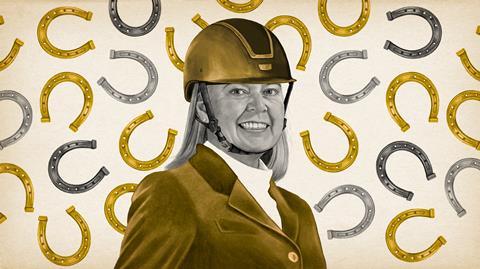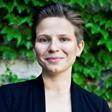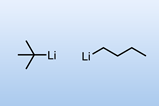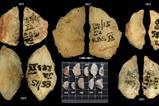The computational chemist on perspectives from outside academia and the importance of inquisitiveness

Nora de Leeuw is a computational chemist, and the executive dean of the faculty of engineering and physical sciences at the University of Leeds, UK. She was awarded the Royal Society Wolfson Research Merit Award in 2009, and the Royal Society of Chemistry’s 2023 interdisciplinary prize.
I didn’t intend to become a chemist. I intended to become a vet. But I decided, actually, chemistry was really interesting. Then I made a mistake and studied chemical engineering for a year, which I found was very little about chemistry. So, I changed completely and went into hotel and catering business management. I came to England, held a job and got a bit bored. So, I decided to do an Open University degree, and I went back into chemistry with physics.
Having worked outside academia is quite helpful I think, because you have seen a different aspect to life. I worked for a big hotel, but I also worked for solicitors’ offices, and I ran a business with my then-husband, so I’ve done quite a bit outside academia.
I still remember during my PhD, having my children in the office. There were loads of toys everywhere. I lived an hour and a half away from the university. I couldn’t move closer because of my two children. And I worked also on the weekends in the business with my husband. I was busy, but it concentrates the mind. I was very lucky because I had an extremely good supervisor/colleague who basically said ‘Don’t worry about it. You just do your job whenever you can.’
I have a horse; her name is Berta. She’s a grey and she is an Irish draught. They have a very nice temperament and it’s nice because I’m not a very good rider. I mean, I’m a decent rider, but I don’t compete. I like to go into the woods and just wander around. It gives you time to think. Some of my best ideas came by just wandering around, thinking.
It’s sobering, what we have here at our fingertips. We had a big programme with sub-Saharan Africa and that was very much about research capacity building. There you see people doing excellent stuff with nothing. And they only need a bit of help. I think that is more worthwhile than my own personal work.
Research is great fun, but it is hard work in the end
People have written novels sitting at a cafe table. I couldn’t do that. I work at my desk. I’m a computational chemist, so our labs are also just desks with computers. I like going into the lab to chat to the research group, which is a nice change. In the evening, when I read papers, I will sit on the sofa. But for concentrated work, I need to sit at a desk.
It’s not necessarily the case that if you’re fantastic at doing a degree programme that you will be a very good PhD student. Some of my best PhD students weren’t that great at passing exams. If you want to do research, you have to be really inquisitive and capable of working on your own and thinking things through yourself.
I think that hard work is most important in research. It’s great fun, but it is hard work in the end. You don’t have to work ridiculous hours; it’s just working steadily and being really interested and not just thinking ‘Oh, I won’t go to this seminar because it’s not about my field.’ Some of my best collaborations and ideas came from going to a talk about something completely outside of my field.
Chemists are such a versatile lot. Whether straight from undergraduate or PhD level grads, they are very, very employable in all sorts of fields. That’s why I think you should think about what can you actually do with a chemistry degree, and not just think ‘Oh my gosh, I’m a chemist. So now I have to get a chemistry job.’
I like to think that chemists solve the world’s problems. If you think of energy or pollution, you need chemists. You need a lot of other people as well, obviously, but you definitely need chemists to be in there in the mix.
Sometimes I think I would have liked to be an architect. I love buildings. I love breaking through walls, redoing things, old buildings. I love ruins – Greek and Roman ruins and things like that – but I also quite like just houses and walking around thinking ‘Oh, you could do that. You could do this.’
Sometimes there can be friction between teaching and research in a big faculty. If someone’s really research-focused, teaching is sort of in the way. On the other hand, students are there and we need to teach them. That’s the next generation and they need to be taught by the people who do the research. Otherwise, well, what’s the point?

















No comments yet